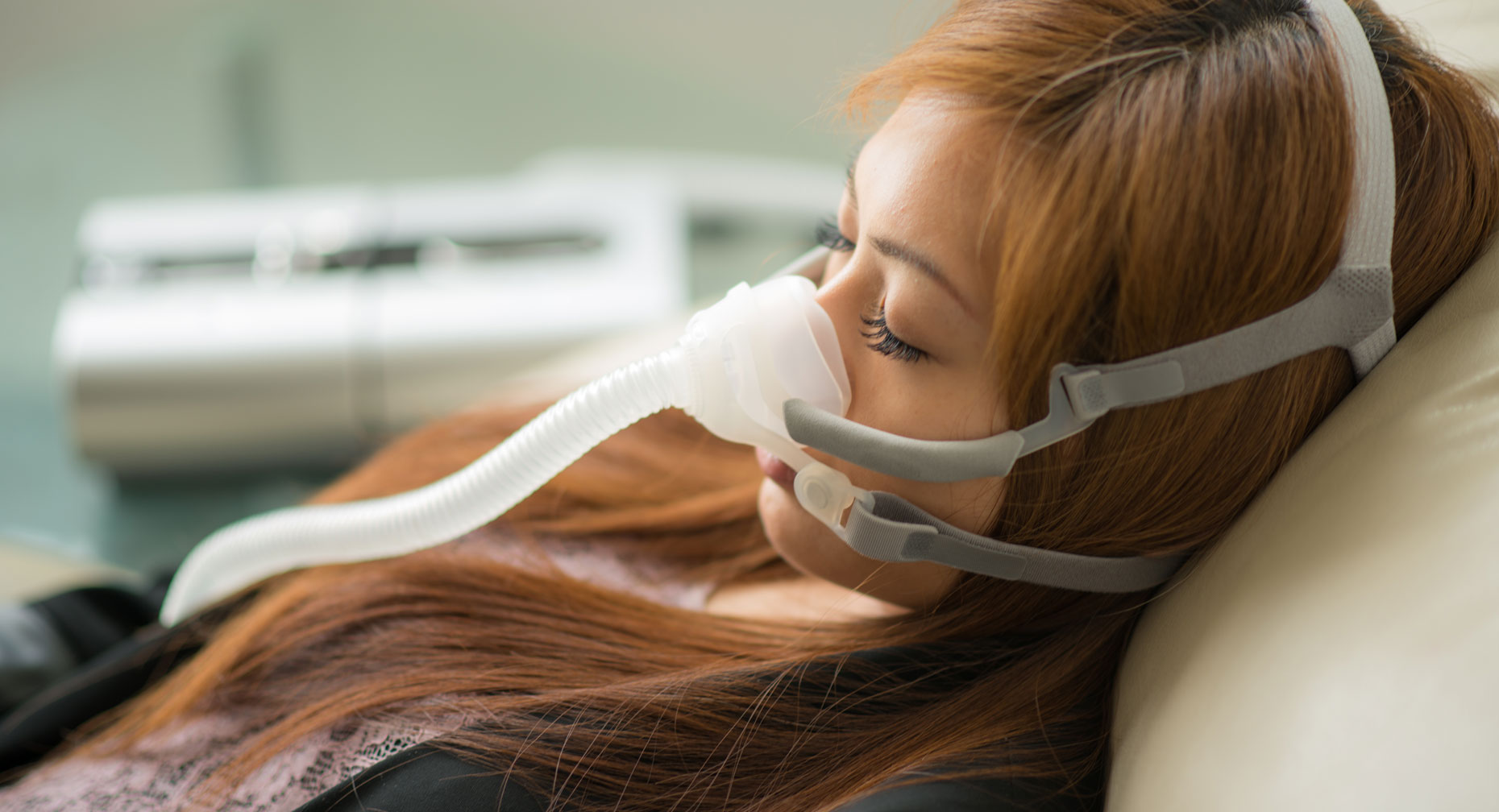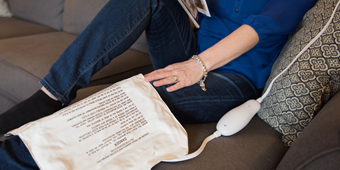CPAP: Sleep Silent, Sleep Deep

Answer a few questions and we'll provide you with a list of primary care providers that best fit your needs.
“What I wouldn’t give for one good night’s sleep!”
If obstructive sleep apnea is robbing you of the priceless benefits of sound sleep, a continuous positive airway pressure (CPAP) machine could be your ticket to more peaceful, restful and healthful sleep.
With obstructive sleep apnea, the airway at the back of your throat closes repeatedly during sleep. As it disrupts your breathing, sleep apnea interrupts your sleep and causes loud snoring.
A CPAP machine is often the most effective treatment for this condition. This small, portable bedside unit pumps a continuous mild flow of air through a hose and into a mask that covers your nose or nose and mouth. In some cases, CPAP is prescribed with other treatments.
CPAP works by pushing aside sagging soft tissue, keeping the airway open to help you breathe better and sleep through the night. It also eliminates or lessens snoring, which your bedfellow – and even others in the house – will appreciate.
The Benefits of CPAP
 Most CPAP users enjoy immediate symptom relief. Able to get a full night’s sleep, they feel more alert, energized and mentally sharp the next day.
Most CPAP users enjoy immediate symptom relief. Able to get a full night’s sleep, they feel more alert, energized and mentally sharp the next day.
“With a CPAP machine, you’ll feel so much better, much more rested in the morning,” says Cheryl White, executive director of Fidelity Health Care. “It really makes a big difference in your quality of life and daytime productivity.”
Besides making you feel tired, sleep apnea adversely affects heart and respiratory health.
And because it causes loud snoring, sleep apnea often forces couples to sleep in separate bedrooms. “Now, with CPAP, they can share a bed again,” White said. “It can make for happier relationships.”
Adapting to CPAP
While CPAPs are safe and effective, White says that getting used to wearing a CPAP mask at night can take time for many people. “Be patient,” she advises.
Respiratory therapists are trained to fit sleep apnea patients with masks that conform to the unique shape of every face. And a doctor adjusts the CPAP machine to provide the proper pressure to keep the airway open.
Most CPAP users enjoy immediate symptom relief.
Respiratory therapists and sleep center staff follow up with patients. They make adjustments to the mask and air pressure as needed, based on the patient’s experience and data collected by the CPAP machine. In some cases, the patient may be fitted with a different style mask.
CPAP users also benefit from the shared experience of others in the CPAP Support Group offered by Premier Health through the Samaritan Sleep Center.
White offers additional advice for adjusting to CPAP:
- Use extra pillows
- Talk with your doctor if you experience nasal stuffiness or dryness with your CPAP device. Moistening nasal spray or a CPAP with a humidifier may provide relief.
- Follow instructions to keep your mask clean
BiPAP: An Alternative
Patients with more severe cases of sleep apnea or other respiratory conditions, such as chronic obstructive pulmonary disorder (COPD), may require an alternative to the CPAP: a bi-level positive airway pressure (BiPAP) device. Larger patients, with a higher body mass index (BMI), also often need BiPAP.
While CPAP provides a continuous level of air pressure to maintain the airway, BiPAP provides two levels of pressure – a higher level when you inhale and less when you exhale.
Your health care provider and respiratory therapists are ready to help you find the best style and fit to send you off to your own sweet dreams.
Answer a few questions and we'll provide you with a list of primary care providers that best fit your needs.
Source: Cheryl White, Executive Director, Fidelity Health Care, Premier Health; American Sleep Association; National Sleep Foundation; National Institutes of Health





